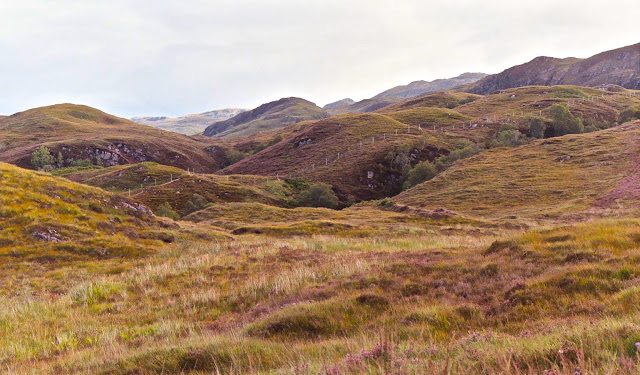In the Scottish Highlands heather tints the hillsides purple during the months of August and September. And here I am in the sultry South Carolina Lowcountry waxing nostalgic about late summer trips to Scotland. This year I won't be inhaling the crisp Highland air or the delicate scent of heather. You see, I finished the research for my novel Stumbling through Heather and, in fact, have completed the writing.
What most surprised me about heather was how sturdy it is. But then it has to be in order to survive in the harsh environment where it thrives. Heather, also known as ling, is a dwarf shrub with a life span of approximately thirty years. Cross-leaved heath and bell heather grow alongside ling on peaty moorlands.
In his book Introducing Heather, David Lambie states that a single large heather plant can produce as many as 150,000 seeds. No wonder certain hills turn purple when the heather blooms.
What most surprised me about heather was how sturdy it is. But then it has to be in order to survive in the harsh environment where it thrives. Heather, also known as ling, is a dwarf shrub with a life span of approximately thirty years. Cross-leaved heath and bell heather grow alongside ling on peaty moorlands.
 |
This heather I photographed growing near the base of Beinn Eighe appears
more rosy than purple. Some heather flowers are more pinkish than purple, others are more magenta. |
 |
| Wild heather (Calluna vulgaris) up close This one is growing along a roadside two or three miles from Loch Ness. |
Mexican, or false, heather can be found in plant nurseries here, but it lacks the vigor of Calluna vulgaris. And where locally might I find the heather-scented air freshener I remember from my stay in Lochcarron?

